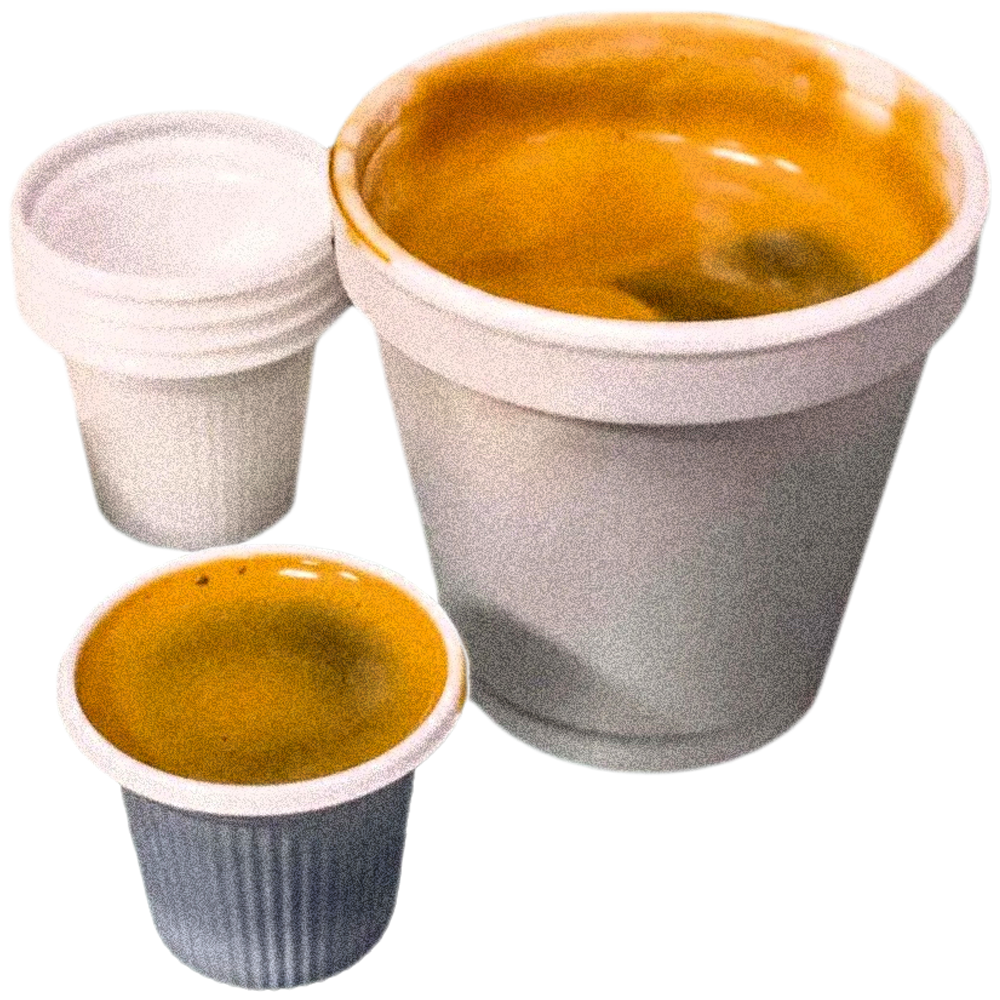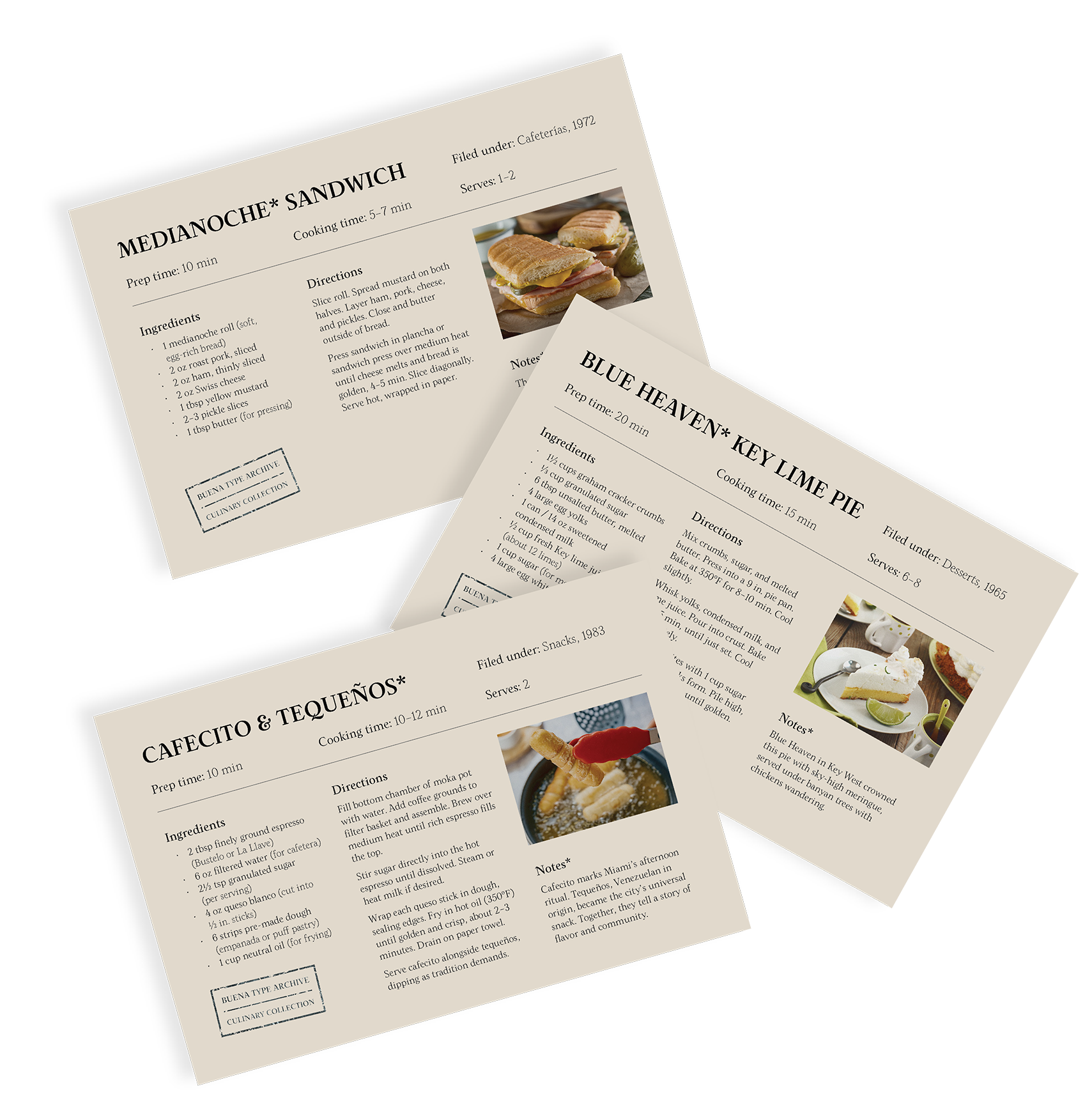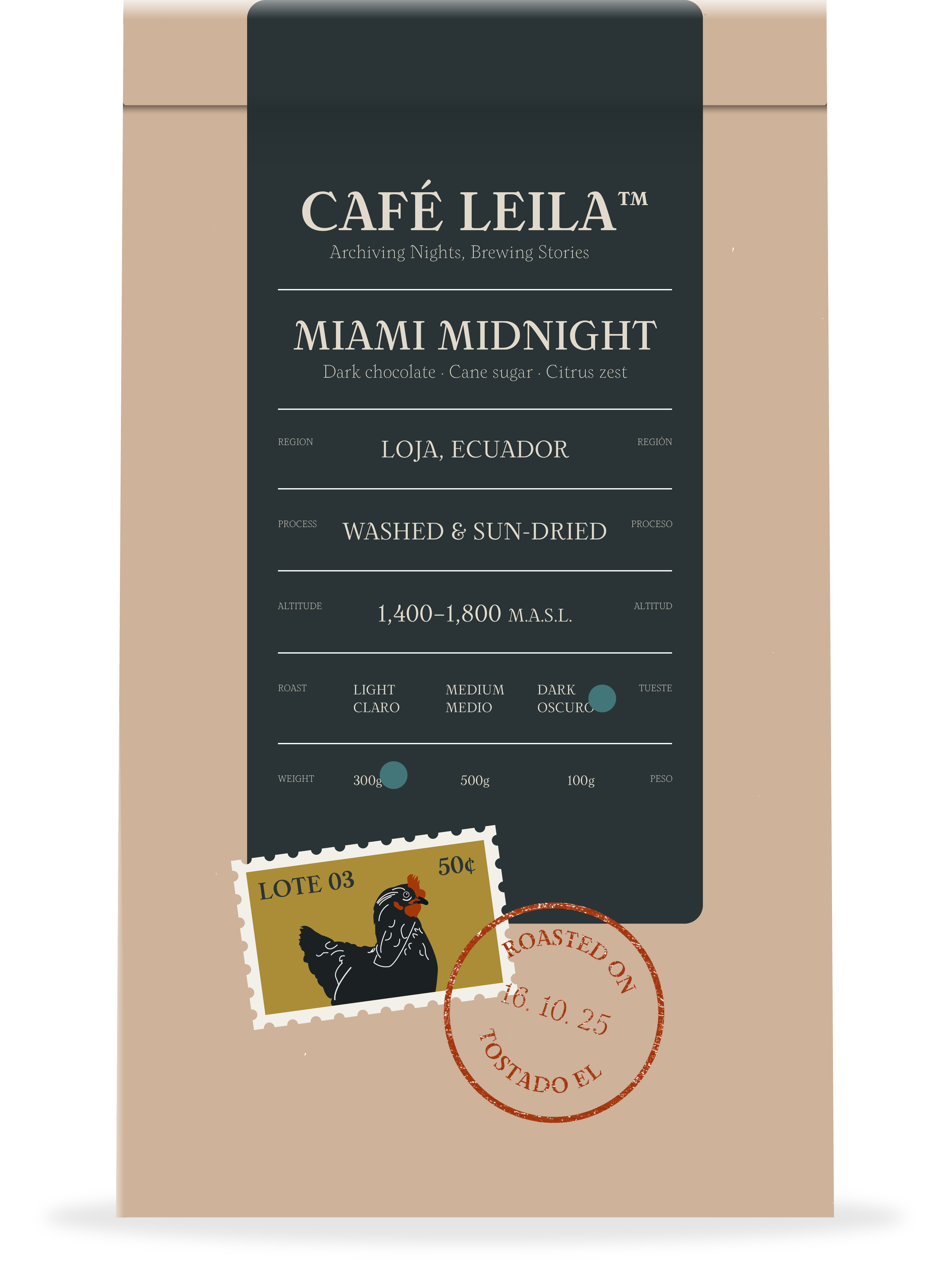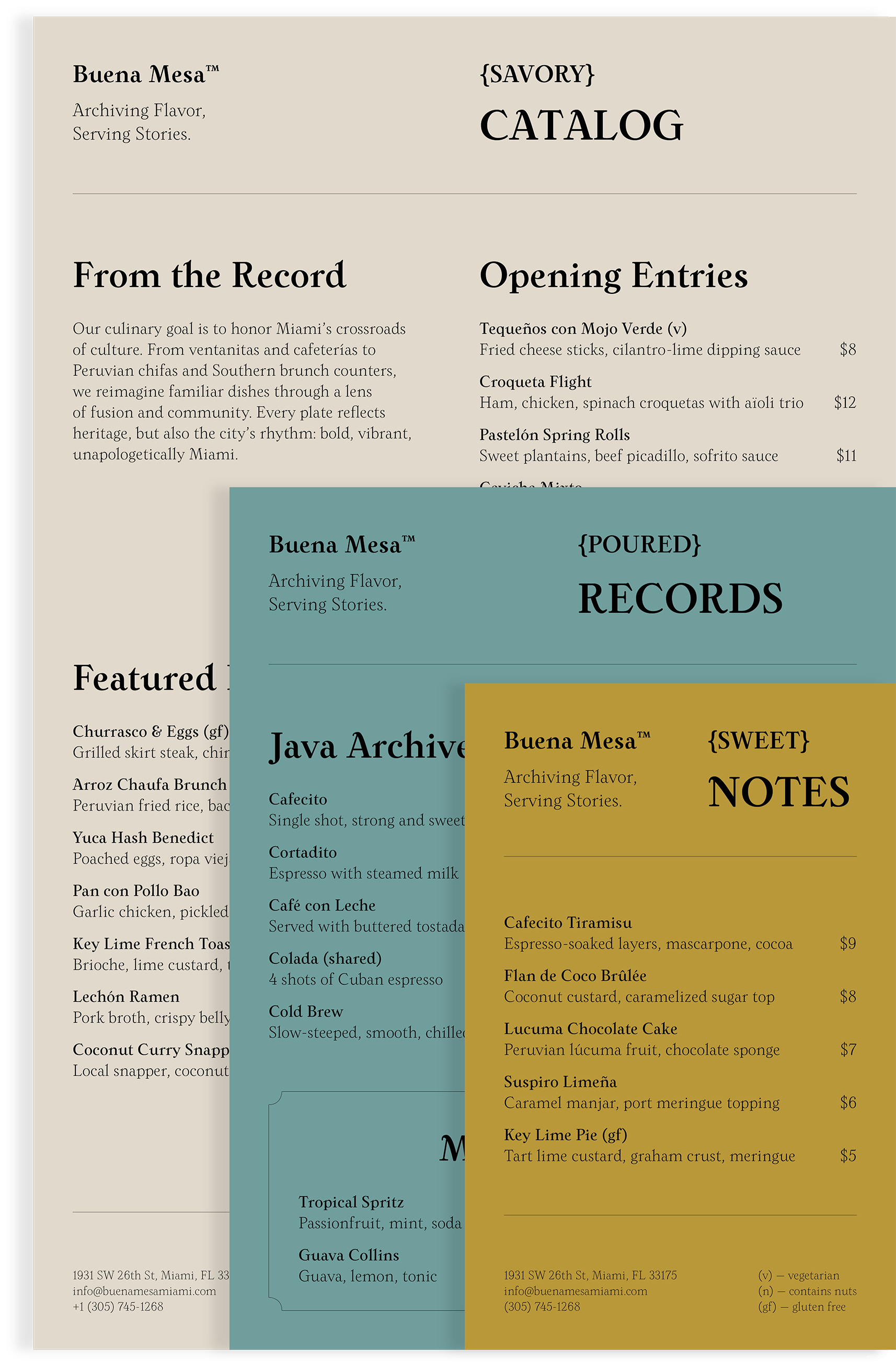BT CAFECITO
About
BT Cafecito is a serif display typeface inspired by Miami’s coffee culture. With soft, wavy serifs and distinctive ball terminals, it makes a statement without losing warmth. Featuring 600+ glyphs and support for hundreds of Latin-based languages, it’s as versatile as it is flavorful. Designed with food and hospitality in mind, BT Cafecito shines across restaurant menus, café branding, recipe books, packaging, and vibrant visual identities.
BT Cafecito is a serif display typeface inspired by Miami’s coffee culture. With soft, wavy serifs and distinctive ball terminals, it makes a statement without losing warmth. Featuring 600+ glyphs and support for hundreds of Latin-based languages, it’s as versatile as it is flavorful. Designed with food and hospitality in mind, BT Cafecito shines across restaurant menus, café branding, recipe books, packaging, and vibrant visual identities.
Designer: Marissa Balbuena
Year of Release: 2024-2025
Version: 2.05
Weights: Light, Regular, Medium, SemiBold, Bold
Year of Release: 2024-2025
Version: 2.05
Weights: Light, Regular, Medium, SemiBold, Bold
Try It Out
Light
Fantastically strong & super sweet.
Regular
Timeless opulence, Miami zest.
Medium
Exudes pure warmth and joy.
SemiBold
Bold flavor, soft in the finish.
Bold
305 sunrises painted in rich crema.
Reduced Character Set
A
B
C
D
E
F
G
H
I
J
K
L
M
N
O
P
Q
R
S
T
U
V
W
X
Y
Z
a
b
c
d
e
f
g
h
i
j
k
l
m
n
o
p
q
r
s
t
u
v
w
x
y
z
0
1
2
3
4
5
6
7
8
9
.
,
!
?
:
;
%
*
£
§

In Use



Supported Languages
Our typefaces currently support Latin-script languages only. This list reflects Unicode coverage, but may not include all local glyph variations. Feel free to contact us for localization requests or questions.
Abkhazian • Acehnese • Adangme • Adyghe • Afrikaans • Albanian • Aleut • Angika • Apache, Western • Aragonese • Arapaho • Aromanian • Asturian • Asu • Avaric • Awadhi • Aymara • Azerbaijani • Balinese • Basque • Bemba • Bena • Bini • Bislama • Bosnian • Breton • Buginese • Cajun French • Catalan • Cebuano • Chamorro • Cheyenne • Chickasaw • Chiga • Chuukese • Colognian • Comorian • Cornish • Corsican • Croatian • Czech • Dakota • Danish • Dargwa • Dazaga • Dogrib • Dutch • Efik • Ekajuk • Embu • English • Esperanto • Estonian • Faroese • Fijian • Filipino • Finnish • Fon • French • Friulian • Galician • Ganda • German • Gilbertese • Gorontalo • Guarani • Gusii • Gwichʼin • Haitian Creole • Hawaiian • Herero • Hiligaynon • Hungarian • Hupa • Iban • Ibibio • Icelandic • Ido • Igbo • Iloko • Inari Sami • Indonesian • Interlingua • Irish • Italian • Javanese • Jju • Jola-Fonyi • Kabardian • Kabuverdianu • Kachin • Kalaallisut • Kalenjin • Kalmyk • Kamba • Kanuri • Karachay-Balkar • Karelian • Khasi • Kikuyu • Kimbundu • Kinyarwanda • Klingon • Komi • Koro • Koyra Chiini • Koyraboro Senni • Kuanyama • Kumyk • Kurukh • Ladino • Langi • Latin • Latvian • Lezghian • Limburgish • Lithuanian • Lojban • Louisiana Creole • Lower Sorbian • Lozi • Luba-Lulua • Lule Sami • Lunda • Luo • Luxembourgish • Luyia • Machame • Madurese • Magahi • Makasar • Makhuwa-Meetto • Makonde • Malagasy • Malay • Maltese • Manx • Māori • Mapuche • Mari • Marshallese • Mende • Meru • Mi’kmaw • Minangkabau • Mirandese • Mizo • Mohawk • Moksha • Morisyen • Mossi • Mvskoke • Nauru • Navajo • Ndonga • Neapolitan • Newari • Ngambay • Nias • Niuean • Nogai • North Ndebele • North Sámi • Northern Sotho • Norwegian Bokmål • Norwegian Nynorsk • Nyanja • Nyankole • Occitan • Oromo • Palauan • Pampanga • Pangasinan • Papiamento • Pite Sámi • Polish • Portuguese • Quechua • Rapanui • Rarotongan • Romanian • Romansh • Rombo • Rundi • Rwa • Samburu • Samoan • Sandawe • Sango • Sangu • Sardinian • Scots • Scottish Gaelic • Sena • Serbian • Shambala • Shan • Shona • Sicilian • Siksiká • Skolt Sami • Slovak • Slovenian • Soga • Somali • Soninke • South Ndebele • South Sámi • Southern Altai • Southern Sotho • Spanish • Sranan Tongo • Sukuma • Sundanese • Swahili • Swati • Swedish • Swiss German • Tahitian • Taita • Taroko • Tasawaq • Teso • Tetum • Timne • Tok Pisin • Tongan • Tsonga • Tswana • Tumbuka • Turkish • Turkmen • Tuvalu • Tuvinian • Tyap • Udmurt • Umbundu • Ume Sámi • Upper Sorbian • Uzbek • Venda • Vietnamese • Vunjo • Walloon • Waray • Welsh • Wolastoqey • Wolof • Xhosa • Yemba • Zarma • Zaza • Zulu • Zuni
Abkhazian • Acehnese • Adangme • Adyghe • Afrikaans • Albanian • Aleut • Angika • Apache, Western • Aragonese • Arapaho • Aromanian • Asturian • Asu • Avaric • Awadhi • Aymara • Azerbaijani • Balinese • Basque • Bemba • Bena • Bini • Bislama • Bosnian • Breton • Buginese • Cajun French • Catalan • Cebuano • Chamorro • Cheyenne • Chickasaw • Chiga • Chuukese • Colognian • Comorian • Cornish • Corsican • Croatian • Czech • Dakota • Danish • Dargwa • Dazaga • Dogrib • Dutch • Efik • Ekajuk • Embu • English • Esperanto • Estonian • Faroese • Fijian • Filipino • Finnish • Fon • French • Friulian • Galician • Ganda • German • Gilbertese • Gorontalo • Guarani • Gusii • Gwichʼin • Haitian Creole • Hawaiian • Herero • Hiligaynon • Hungarian • Hupa • Iban • Ibibio • Icelandic • Ido • Igbo • Iloko • Inari Sami • Indonesian • Interlingua • Irish • Italian • Javanese • Jju • Jola-Fonyi • Kabardian • Kabuverdianu • Kachin • Kalaallisut • Kalenjin • Kalmyk • Kamba • Kanuri • Karachay-Balkar • Karelian • Khasi • Kikuyu • Kimbundu • Kinyarwanda • Klingon • Komi • Koro • Koyra Chiini • Koyraboro Senni • Kuanyama • Kumyk • Kurukh • Ladino • Langi • Latin • Latvian • Lezghian • Limburgish • Lithuanian • Lojban • Louisiana Creole • Lower Sorbian • Lozi • Luba-Lulua • Lule Sami • Lunda • Luo • Luxembourgish • Luyia • Machame • Madurese • Magahi • Makasar • Makhuwa-Meetto • Makonde • Malagasy • Malay • Maltese • Manx • Māori • Mapuche • Mari • Marshallese • Mende • Meru • Mi’kmaw • Minangkabau • Mirandese • Mizo • Mohawk • Moksha • Morisyen • Mossi • Mvskoke • Nauru • Navajo • Ndonga • Neapolitan • Newari • Ngambay • Nias • Niuean • Nogai • North Ndebele • North Sámi • Northern Sotho • Norwegian Bokmål • Norwegian Nynorsk • Nyanja • Nyankole • Occitan • Oromo • Palauan • Pampanga • Pangasinan • Papiamento • Pite Sámi • Polish • Portuguese • Quechua • Rapanui • Rarotongan • Romanian • Romansh • Rombo • Rundi • Rwa • Samburu • Samoan • Sandawe • Sango • Sangu • Sardinian • Scots • Scottish Gaelic • Sena • Serbian • Shambala • Shan • Shona • Sicilian • Siksiká • Skolt Sami • Slovak • Slovenian • Soga • Somali • Soninke • South Ndebele • South Sámi • Southern Altai • Southern Sotho • Spanish • Sranan Tongo • Sukuma • Sundanese • Swahili • Swati • Swedish • Swiss German • Tahitian • Taita • Taroko • Tasawaq • Teso • Tetum • Timne • Tok Pisin • Tongan • Tsonga • Tswana • Tumbuka • Turkish • Turkmen • Tuvalu • Tuvinian • Tyap • Udmurt • Umbundu • Ume Sámi • Upper Sorbian • Uzbek • Venda • Vietnamese • Vunjo • Walloon • Waray • Welsh • Wolastoqey • Wolof • Xhosa • Yemba • Zarma • Zaza • Zulu • Zuni
LET’S CONNECT
︎ msb[at]buenatype[dot]com
︎ msb[at]buenatype[dot]com
FOLLOW US
Created by Marissa Balbuena
© 2025, All rights reserved